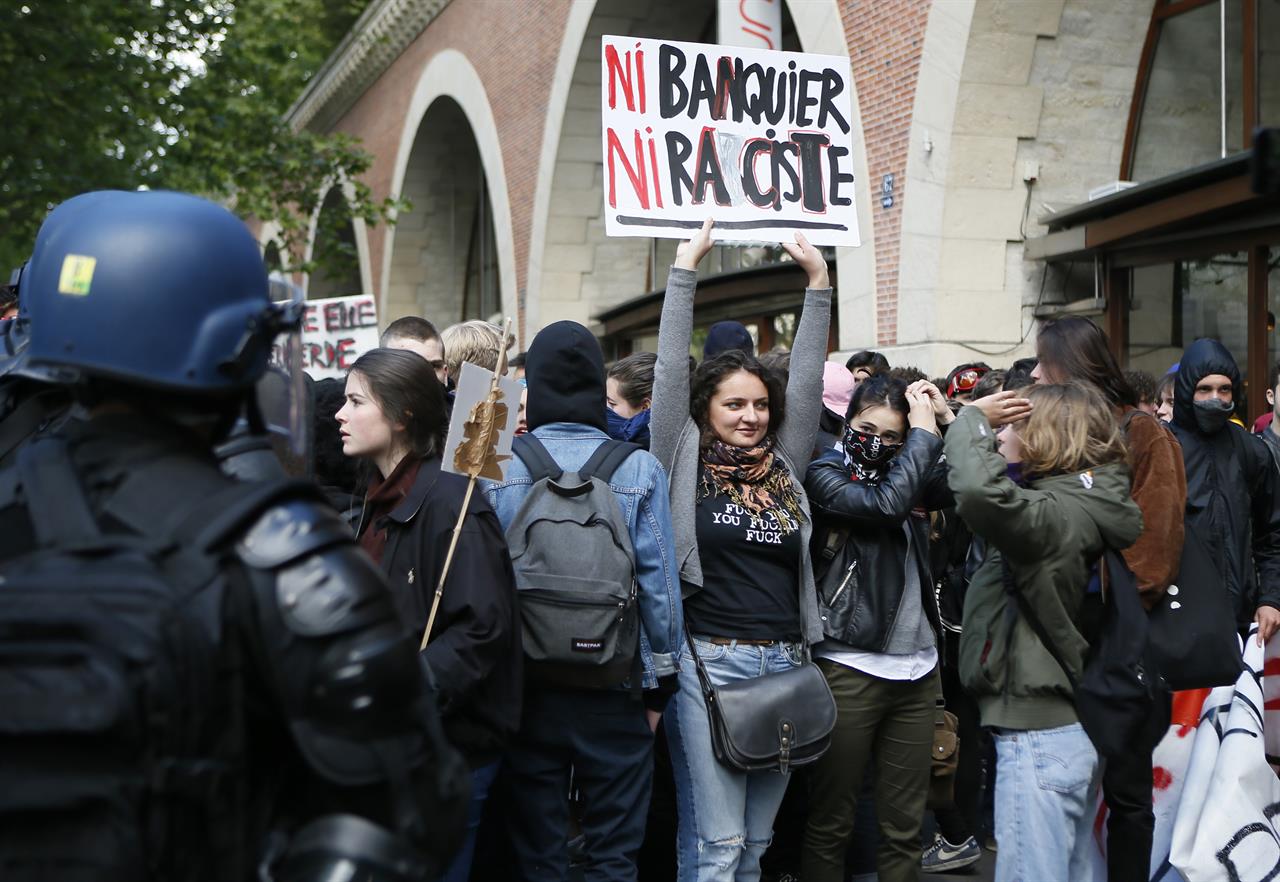France’s historic presidential battle between fascist Marine Le Pen and neo-liberal Emmanuele Macron may be over, but the crisis in French politics that produced this remarkable contest is far from resolved.
It was the first time ever that neither the Conservatives nor the Socialist (Labor-type) Party made it to the second round.
Macron took 24 per cent to top the poll in the first round. He was able to build support simply on the basis that he wasn’t from the hated mainstream parties. He kept relatively quiet about his plans to attack trade unions and public sector jobs, instead promoting himself as “an outsider”.

In truth, he’s as insider as they come—an ex-banker, and a former Minister of Economy in outgoing President Francois Hollande’s government.
Macron won comfortably with 66 per cent of valid votes in the second round run-off. But almost two-thirds of his voters said they did it only to keep out Le Pen. Turnout at polling booths, usually high in France, was the lowest since 1969. And 12 per cent of people who did vote recorded a blank or spoiled ballot.
Now, in the context of such limited support, Macron faces the elections for parliamentary candidates without a party. As soon as he tries to cobble together a government of neo-liberals like himself, his claim to “outsider” status will be easily exposed. Like those that came before him, Macron will have a hard time trying to impose his ambitious neo-liberal reforms.
He takes the helm from the humiliated French Socialist Party, led by Francois Holland. Much like their Greek counterparts PASOK, they have been reduced to a pale shadow of their former selves after years of implementing austerity measures. Hollande achieved little in his time but a fantastic drop in support from 60 per cent when first elected in 2012 to an approval rating of just 4 per cent as he left office. The Socialists’ candidate, Benoît Hamon, recorded a derisory 6 per cent in the first round.
Austerity and racism
Hollande faced mass strikes in 2016 against his Labour Law, and he only got it through by suspending voting in parliament. The French economy is still in crisis, with unemployment at 10 per cent (and 23 per cent amongst young people).
Hollande’s government was also characterised by repeated Islamophobic offensives since the attack on Charlie Hebdo in 2015. He used nationalism and appeals to “Republican values” to obscure the focus on his austerity measures.
This climate of racism, authoritarianism and austerity has created fertile ground for the repugnant fascist National Front.
Of course, many breathed a sigh of relief that Macron defeated their leader, Le Pen. But it would be a mistake to equate this with a defeat for the National Front. The party’s Nazi roots were exposed in the election, with the party’s temporary leader revealed to have denied the Holocaust and supported the Vichy regime.
Not only did these fascists win nearly 11 million votes—a historic high—but they continue to organise and win support almost entirely unimpeded by an active protest movement against them. Some left parties and activists have even supported Islamophobic measures like the ban on the burqa, helping to legitimate and give cover to racism.
Le Pen’s strategy is to hide the true fascist roots and commitment of the National Front in order to “normalise” the party and chase mainstream electoral support. Macron’s presidency promises more of the policies the National Front fed off, which will help fuel their growth. That’s why it was right for sections of the French left to refuse to be drawn into backing Macron.
Building an activist movement to beat back the National Front’s advance is crucial. But a left alternative is also needed.
The vacuum in politics, and the hatred of austerity, means there is a real space for this. Left candidate Jean Luc Mélenchon won an impressive 19.6 per cent of the vote in the first round, nearly as many votes as Le Pen. He supported the rights of refugees crossing the Mediterranean to come to France, called for withdrawal from NATO, the abolition of the Labour Law, and taxing high income earners at 90 per cent.
Combining anti-racism and anti-austerity on the streets holds the possibility of transforming French politics. Mélenchon himself seems unlikely to build such a street movement. He deliberately ditched his old party and formed a new “movement” with nationalistic tones, France Unbowed, simply to stand in the election.
Macron is going to be a weak leader. It remains to be seen how many seats he will actually win in the French parliamentary elections in June. But unless a real extra-parliamentary opposition is built to fight racism and fight Macron, Le Pen and the National Front will keep growing.
By Amy Thomas





